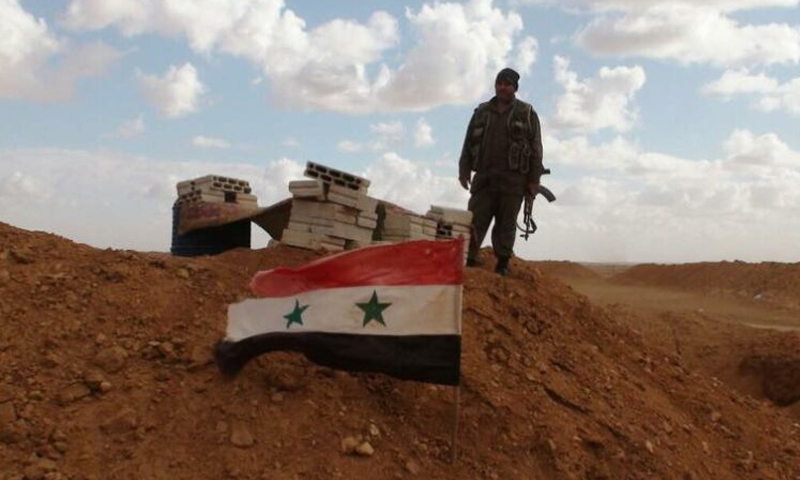Enab Baladi-Orwa al-Mundhir
Since 28 March, security patrols and flying checkpoints have been proliferating at the entry and exit points around the “prestigious” neighborhoods of the city of Homs, the Damascus-Aleppo highway (M5), and the western ring road at Tartous turn-off.
The patrols carefully inspect every passing vehicle without checking their owners’ identities, while flying checkpoints sporadically appear and disppaer on the highway for inspecting vehicles and cargo bills.
The joint patrols and flying checkpoints are manned by elements from all security branches in the governorate of Homs. In addition, they are headed by officers affiliated with the security committee in Homs governorate led by Major General Muhammad Subuh, commander of the Third Corps, which is based in the Central Region Command as its headquarters.
These security patrols play a role in controlling the economy, denying Homs residents their freedom to transfer money, and threatening their lives if they violate the decisions and instructions issued by the Presidency of the Council of Ministers and the Central Bank.
Patrols seeking money
The Syrian government is attempting to reduce the money supply, including the sum of the local currency in circulation in the Syrian markets, by restricting money transfers and payment methods.
The government seeks to force merchants to carry out their commercial transactions via bank accounts, withdrawing cash from their hands and freezing it in banking channels. The government also wants to determine the amounts of cash the travelers can carry on them in an attempt to control the exchange rate of the SYP to the US dollar; the Syrian currency fell to new lows last March, trading above 5,000 to the US dollar on a parallel market.
Mamoun, a resident of Homs governorate, who requested his surname be withheld for security reasons, told Enab Baladi that “joint” security patrols are widely installed in the governorate, and their deployment is concentrated near al-Hamra Street near the al-Baladi Stadium, at the entry points to al-Waer neighborhood, and near the university. However, patrols are constantly changing their places.
Mamoun stressed that the patrols carefully search private vehicles for “money” rather than wanted persons in an attempt to control foreign exchange brokers and receivers of foreign remittances.
The Syrian regime forces removed their checkpoints placed in the city at the end of 2018. Only some checkpoints of the Military Security branch are kept at the city’s main entrance, at the Palmyra roundabout at the southern entrance, and at the grain silos at the northern entrance.
Patrols not accepting bribes
Unlike those controlling permanent checkpoints, the joint patrols are known for not accepting bribes from those who want to cross their checkpoints without being searched.
The joint patrols holding the checkpoints play their role in a disciplined and rapid manner.
They involve numerous members, who do not speak to passersby, and they search all vehicles thoroughly, even military ones.
According to some residents in the city of Homs interviewed by Enab Baladi, these patrols arrest those violating the law by transferring large sums of money between governorates or those seeking to transfer large sums to unauthorized money transfer agencies and remittance recipients on the black market.
Muhammad, a resident of Talbiseh, who requested his surname be withheld for security reasons, told Enab Baladi that he received more than one remittance in the governorate of Homs. He noted that despite the strict measures followed by the patrol elements sprawled in the streets of the governorate, it is hard to catch the remittance recipients. This is because the remittance transactions occur in secondary streets and public parks by bikes or on foot, to avoid detection.
At the beginning of June 2020, the Central Bank of Syria issued a decision preventing Syrian travelers from carrying more than five million SYP between governorates and directing Syrians to “transfer that amount through banks and licensed money transfer companies operating in the country.”
The exchange rate of the Syrian currency to the US dollar is constantly fluctuating; on 17 March, the SYP hit a new record low, trading 4,730 to the US dollar, only to see an improvement in its value on 27 of the same months, recording 3,375 per 1 US dollar. The exchange rate of the SYP to the US dollar remained stable at 3,700 at the beginning of April, according to the Syrian Pound Today (a Syrian Pound tracking website).

